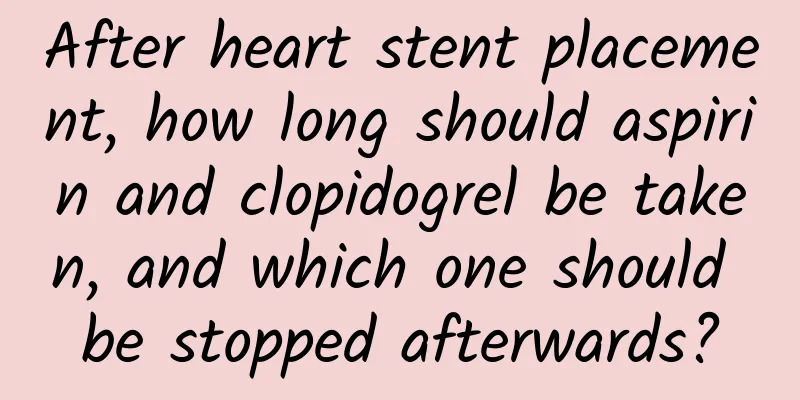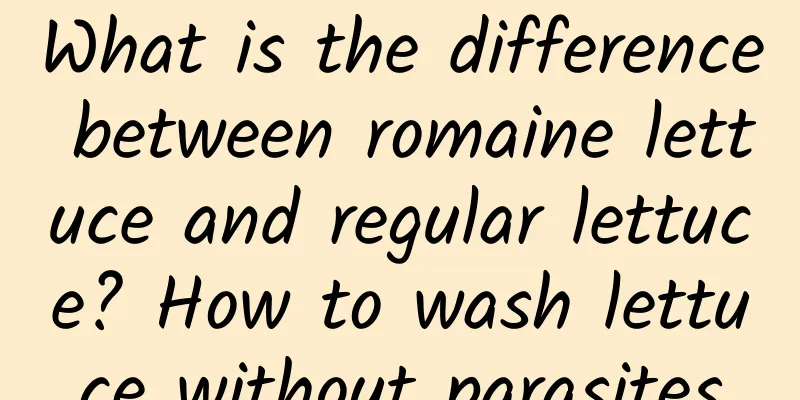After heart stent placement, how long should aspirin and clopidogrel be taken, and which one should be stopped afterwards?

|
A friend left a message for Huazi, saying that he had a heart stent surgery two years ago, and took two antiplatelet drugs, aspirin and clopidogrel, at that time. He took them for about a year, then stopped taking clopidogrel and only took aspirin. But recently someone told him that after a heart stent, aspirin and clopidogrel should be taken continuously, so he asked Huazi whether he should add clopidogrel back? Huazi told him that it was not necessary, and that taking aspirin alone was enough to effectively inhibit platelets and prevent the formation of blood clots. 1. The purpose of "double antiplatelet therapy" after stenting Stenting surgery refers to the use of metal stents to open narrowed or blocked blood vessels to restore normal blood flow. However, metal stents are foreign bodies to the human body, which will stimulate platelets to aggregate on the stents, causing stenosis within the stents, causing blood vessels to narrow again or become blocked. Therefore, long-term antiplatelet therapy is required after stenting. However, one antiplatelet drug is prone to drug resistance, which can easily lead to failure of antiplatelet treatment. Therefore, two antiplatelet drugs are usually used in combination to achieve the effect of "dual resistance", which can greatly enhance the effect of anti-platelet aggregation. Aspirin and clopidogrel are both antiplatelet drugs. Aspirin causes cyclooxygenase acetylation in platelets, while clopidogrel inhibits adenosine diphosphate receptors in platelets. In other words, the two have different mechanisms of action on platelets. When used in combination, they can exert a synergistic effect and better inhibit platelet aggregation. After stent placement, the use of "dual-antibody" treatment can prevent restenosis in the stent. 2. How long does the "dual-antibody" last? After the stent is implanted in the blood vessel, the vascular endothelium will gradually proliferate and wrap the stent inside. In other words, as time goes by, the implanted metal stent will "melt into" the blood vessel wall, and its surface will be covered with normal vascular endothelium. At this time, the stent itself will not induce platelet aggregation, so one drug can be stopped and only single drug treatment can be used. The time that the vascular endothelium covers the stent is about 6 months to 1 year. Many clinical studies have shown that 6 months of "double-antibody" can meet the treatment needs of most patients, but different types of stents and the patient's physical condition have different effects on the speed of vascular healing, so usually 1 year of "double-antibody" treatment is required after surgery. 3. Longer-term dual-antibody therapy is not recommended. Dual-antibody therapy can significantly reduce the formation of blood clots, so some people ask if you can take two drugs all the time? Huazi does not recommend this because long-term dual-antibody therapy will increase the probability of bleeding. Unless the coronary artery lesions are not effectively controlled and the patient is at extremely high risk of cardiovascular disease, longer-term dual-antibody therapy is not necessary. For people with atherosclerosis, even if stents are implanted, cardiovascular risks cannot be completely eliminated, so both antiplatelet drugs cannot be discontinued, and one needs to be retained for long-term treatment. When stopping medication, clopidogrel is usually discontinued, and only aspirin is used to maintain treatment. However, aspirin has significant side effects on the digestive tract. If the patient has a digestive tract disease, they can choose to stop taking aspirin and continue maintenance treatment with only clopidogrel. When taking "double anti-antibodies", be careful to avoid using them together with other non-steroidal anti-inflammatory drugs such as ibuprofen and naproxen, which will affect the antiplatelet effect. Using them together with anticoagulants such as warfarin and heparin will increase the risk of bleeding. If you have other diseases that need treatment, you should choose drugs with less mutual impact under the guidance of a doctor. To summarize, in order to avoid intra-stent stenosis after stent placement, "dual anti" treatment with aspirin and clopidogrel is required. Usually, the "dual anti" treatment lasts for 1 year, after which it is changed to single-drug treatment. Aspirin is generally retained. If the side effects of aspirin cannot be tolerated, clopidogrel can also be retained. Both medication and discontinuation need to be carried out under the guidance of a doctor. If you find any problems during the medication process, please consult a doctor or pharmacist in time. I am pharmacist Huazi, welcome to follow me and share more health knowledge. |
<<: Is there a connection between eating chicken and uterine fibroids?
>>: Why is salmon best eaten raw? Nutritional value of salmon
Recommend
Why do women have a strong genital odor?
Women are prone to odor during menstruation, so t...
Bones are also afraid of sweetness!
This is the 3911th article of Da Yi Xiao Hu If yo...
The first heavy menstrual flow after induced abortion
Irregular menstruation in women is a gynecologica...
Which department should I go to for the 6 items of female hormones?
You can go to the gynecology department to check ...
There is white discharge in the vagina, beware of candidal vaginitis
It is a normal physiological phenomenon for women...
Is the belly noticeable when pregnant for three months?
Three months of pregnancy is considered a dividin...
Is natural abortion harmful?
Abortion is a common problem nowadays. It is very...
15 weeks pregnant, occasional abdominal pain
The pregnancy process is very difficult. At the b...
Does ectopic pregnancy require curettage?
Ectopic pregnancy is a common disease among women...
What should I do if the cesarean section incision is sunken?
After a woman has a cesarean section, there will ...
Does drinking honey water help with labor pains?
Mothers who have given birth to babies know that ...
What causes brown discharge from the vagina?
The secretions from the genitals are usually yell...
What causes stomach pain when you are 8 months pregnant?
The eighth month of pregnancy is already the late...
Why do you need to take statins after suffering from coronary heart disease? Can it reverse the disease?
A patient with coronary heart disease asked Huazi...









